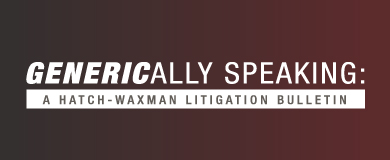- Acumen Powered by Robins Kaplan LLP®
- Affirmative Recovery
- American Indian Law and Policy
- Antitrust and Trade Regulation
- Appellate Advocacy and Guidance
- Business Litigation
- Civil Rights and Police Misconduct
- Class Action Litigation
- Commercial/Project Finance and Real Estate
- Corporate Governance and Special Situations
- Corporate Restructuring and Bankruptcy
- Domestic and International Arbitration
- Health Care Litigation
- Insurance and Catastrophic Loss
- Intellectual Property and Technology Litigation
- Mass Tort Attorneys
- Medical Malpractice Attorneys
- Personal Injury Attorneys
- Telecommunications Litigation and Arbitration
- Wealth Planning, Administration, and Disputes
Acumen Powered by Robins Kaplan LLP®
Ediscovery, Applied Science and Economics, and Litigation Support Solutions
-
June 1, 2022Chambers USA Recognizes Five Robins Kaplan Practice Groups And 17 Lawyers In 2022 Guide
-
June 1, 2022Seasoned Attorney Joins Firm’s Business Litigation Group
-
May 26, 2022Shira Shapiro Named Woman of Promise By The Pearl Society
-
June 3, 202219th Annual Advanced Insurance Law
-
June 9, 2022Building Your Brand: Perspectives and Insights from a Diverse Bar
-
June 10, 2022LGBTQ Legal Services: Transgender Name Change Clinic
-
May 24, 2022Briefly: Seeking Fees and Costs While on Appeal
-
May 19, 202211th Circ. Ban On Service Awards May Inhibit Class Actions
-
May 13, 2022Trademark Applications and the Murky Waters of Subject Matter Jurisdiction
-
June 2, 2022Sandberg Stepping Down as Meta COO After 14 Years
-
June 1, 2022Markets Revert to Recent Form as Pessimism Takes Hold
-
May 27, 2022Unexpectedly Strong Retail Sales Pull Markets Back from the Brink
Find additional firm contact information for press inquiries.
Find resources to help navigate legal and business complexities.
Tris Pharma, Inc. v. Actavis Labs. FL, Inc.
Because the prior-art disclosure would lead one of skill to the purported invention, the asserted claims were found invalid as obvious.
October 20, 2017

Case Name: Tris Pharma, Inc. v. Actavis Labs. FL, Inc., No. 14-1309-GMS, 2017 U.S. Dist. LEXIS 143299 (D. Del. Sept. 5, 2017) (Sleet, J.)
Drug Product and Patent(s)-in-Suit: Quillivant XR® (methylphenidate hydrochloride); U.S. Patents Nos. 8,465,765 (“the ’765 patent”), 8,563,033 (“the ’033 patent”), 8,778,390 (“the ’390 patent”), 8,956,649 (“the ’649 patent”), and 9,040,083 (“the ’083 patent”)
Nature of the Case and Issue(s) Presented: Actavis alleged that the asserted claims were obvious. In particular, Actavis asserted that the prior art taught how to prepare ion exchange resins using methylphenidate as claimed in the patents. Likewise, the prior art taught using various preparation methods to optimize the pH level within the claimed ranges.
Tris argued that the prior art did not disclose the claimed inventions; it, in fact, taught away from the claimed formulations. In particular, Tris argued that one of skill would have conducted unnecessary experiments to arrive at the claimed invention because the art taught away from the claimed pH level in the formulation. Further, Tris argued that secondary indicia of non-obviousness of long felt need, commercial success, unexpected results and copying supported a finding of non-obviousness.
The district court found all asserted claims invalid as obvious.
Why Actavis Prevailed: The district court held that the claims were obvious because it found that the inventive limitations were taught in the prior art. The prior-art literature disclosed the various ranges of pH level claimed in the patents-in-suit and identified the various ways of formulating the claimed compounds. The court found that Tris had not shown any unexpected results from the narrow pH ranges in its claim from those disclosed in the art. As for the secondary indicia, the court held that Tris had not provided sufficient evidence for each factor. The evidence submitted by Tris was attenuated, at best, and did not include the nexus between the secondary consideration and the claimed invention. The court discounted any evidence on copying as the evidence was not strong in an ANDA case.
Related Publications
Related News
If you are interested in having us represent you, you should call us so we can determine whether the matter is one for which we are willing or able to accept professional responsibility. We will not make this determination by e-mail communication. The telephone numbers and addresses for our offices are listed on this page. We reserve the right to decline any representation. We may be required to decline representation if it would create a conflict of interest with our other clients.
By accepting these terms, you are confirming that you have read and understood this important notice.
